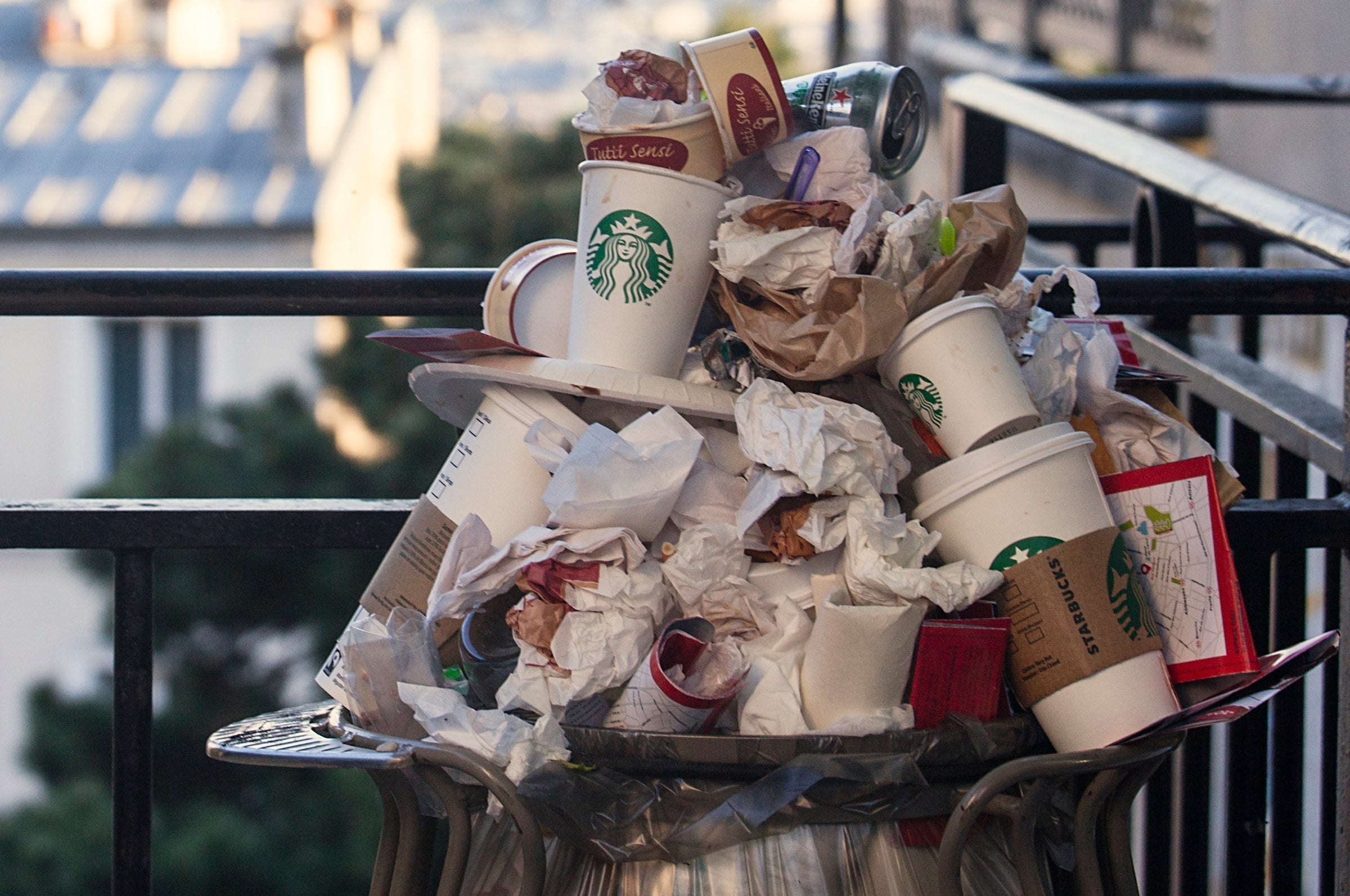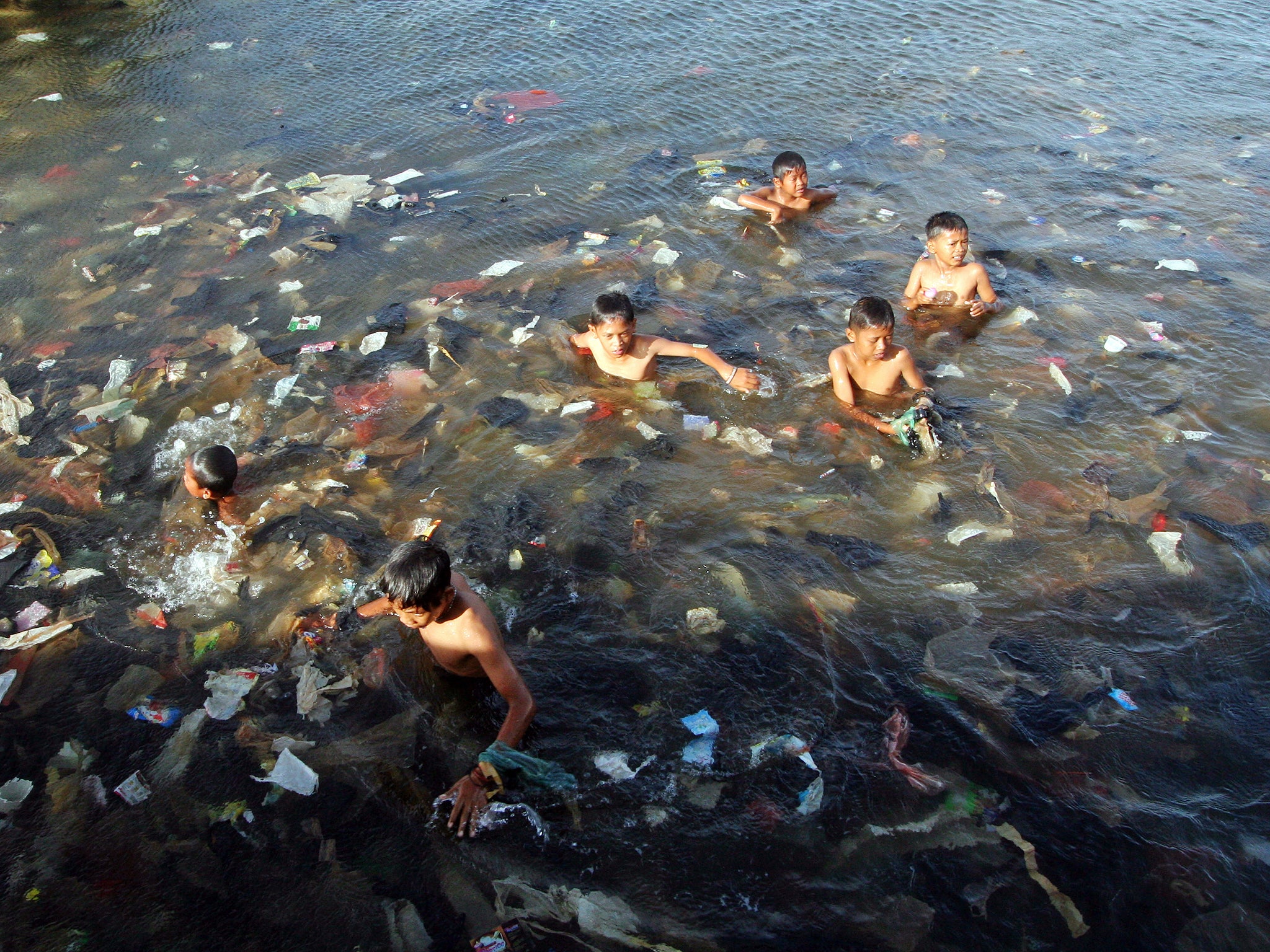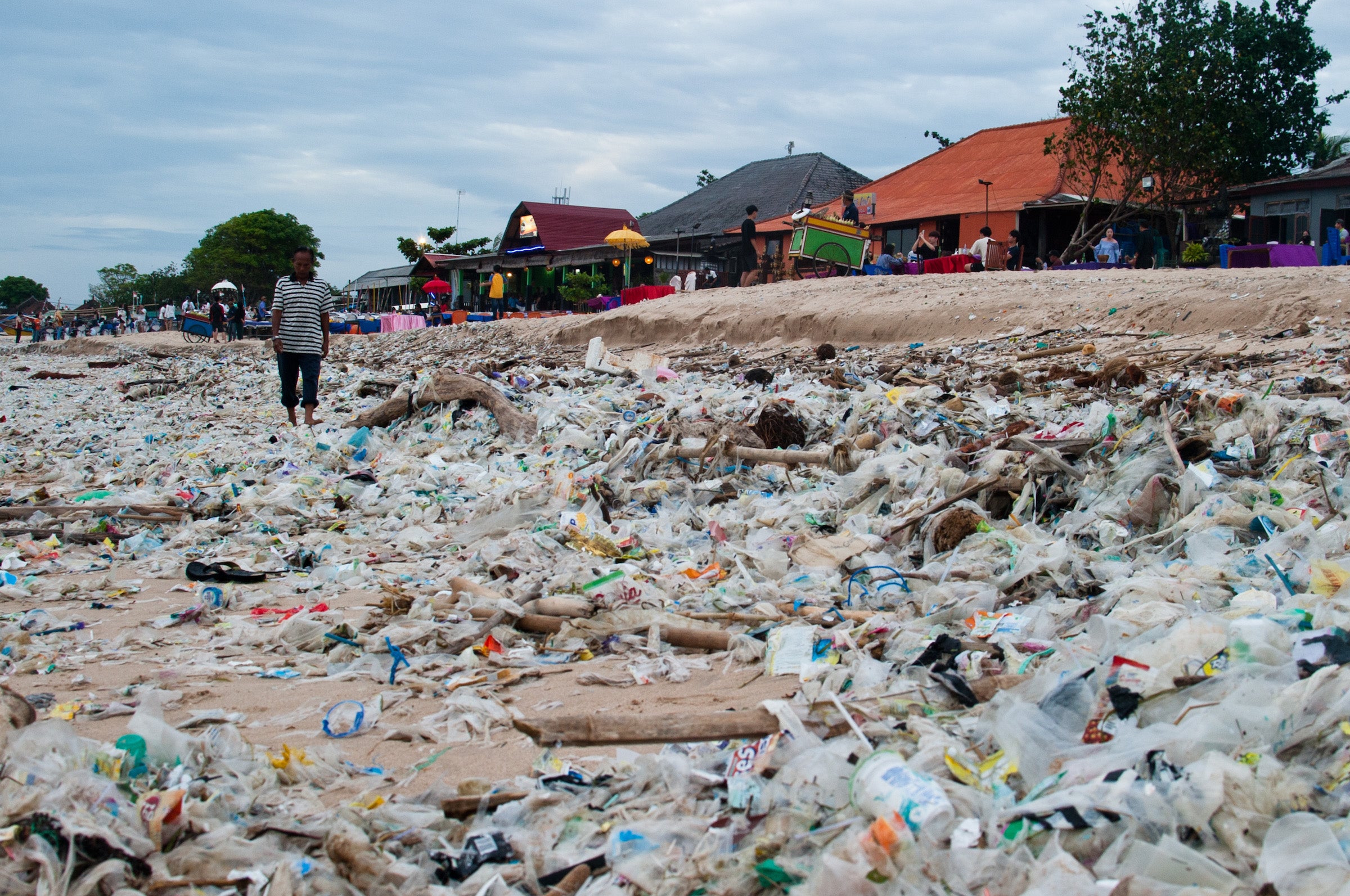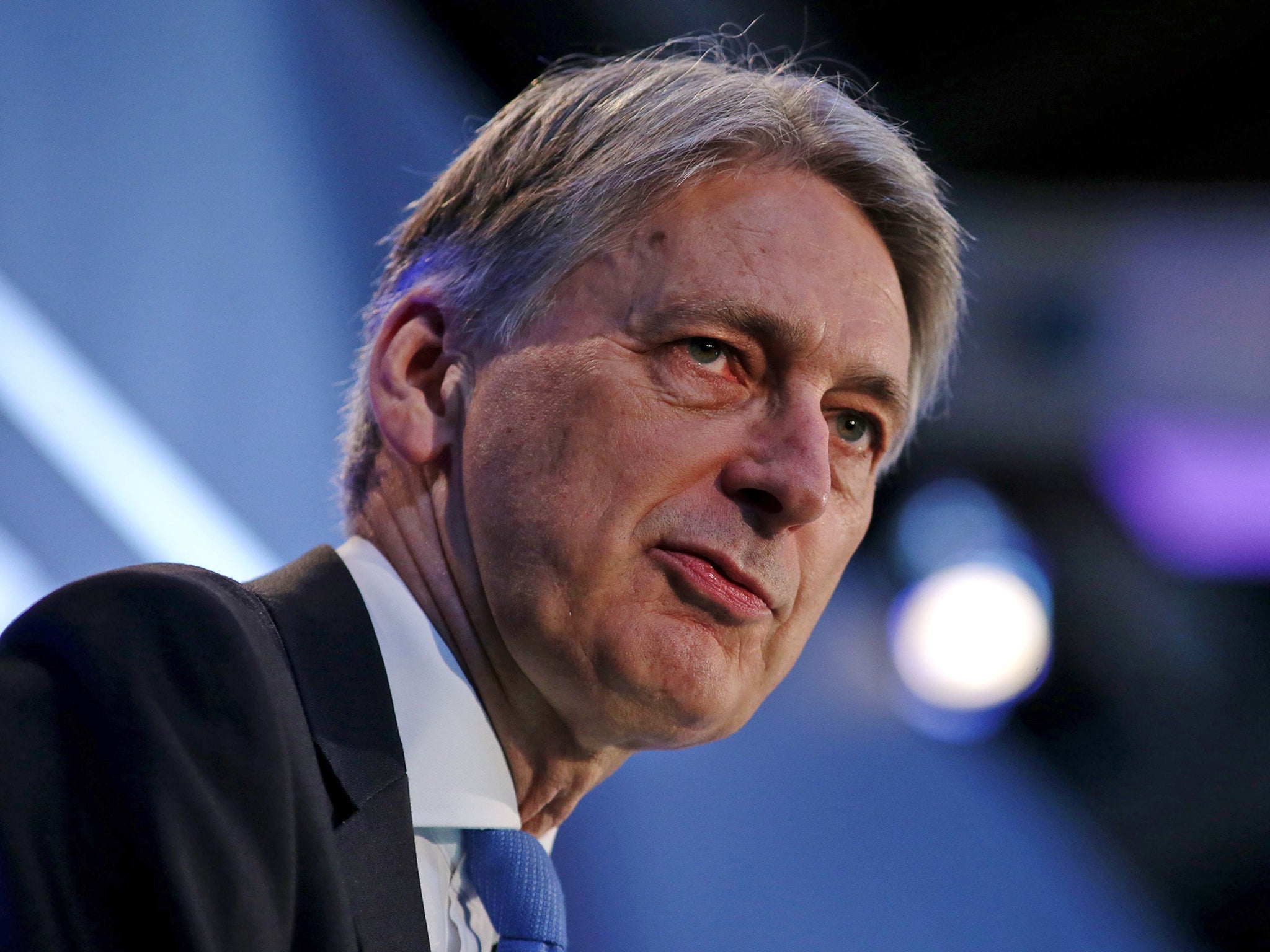To tackle plastic pollution, Philip Hammond needs to wake up and smell the coffee
The chancellor’s long-awaited consultation on tax measures to curb plastic pollution presents an opportunity to do the right thing for our oceans and wildlife – not for Starbucks, Costa and McDonald’s shareholders

Your support helps us to tell the story
From reproductive rights to climate change to Big Tech, The Independent is on the ground when the story is developing. Whether it's investigating the financials of Elon Musk's pro-Trump PAC or producing our latest documentary, 'The A Word', which shines a light on the American women fighting for reproductive rights, we know how important it is to parse out the facts from the messaging.
At such a critical moment in US history, we need reporters on the ground. Your donation allows us to keep sending journalists to speak to both sides of the story.
The Independent is trusted by Americans across the entire political spectrum. And unlike many other quality news outlets, we choose not to lock Americans out of our reporting and analysis with paywalls. We believe quality journalism should be available to everyone, paid for by those who can afford it.
Your support makes all the difference.Millions of people were inspired by David Attenborough’s call to action in the finale of the last year’s Blue Planet II when haunting scenes of plastic pollution were beamed into our homes.
Whether it’s an albatross feeding plastic to its young, or a seahorse grasping a cotton bud stick, shocking images documenting the damage we are doing to our oceans have caused a groundswell of public pressure for action.
It’s therefore not that surprising that a recent study found that Brits are more worried about plastic than they are about Brexit.
And we’re right to be worried. According to the World Economic Forum, by 2050 our oceans are expected to contain more plastics than fish, and the UK is partly to blame. It’s estimated that we use around 10 billion single-use takeaway cups and lids, for hot and cold drinks, every year. Around 12 per cent – that’s three million a day – don’t even make it into a bin: they litter our streets and end up polluting our rivers and seas. Our disposable cup habit is contributing to a global crisis which needs urgent action.

Already, thousands of us have already taken matters into our own hands. City to Sea, a group that campaigns to tackle plastic pollution, and 38 Degrees, one the UK’s largest campaigning organisations, have been calling for the introduction of a levy on single-use plastics since last year. The petition on the 38 Degrees website has amassed nearly 200,000 signatures. Signatories of the petition crowdfunded the cash to hire leading environmental experts to write the ultimate plan aimed at tackling plastic waste. The plan looks at what’s best for our planet – not what suits industry lobbyists and big businesses, who have pushed back on any levies on plastic products. Ours is a people-powered plastic plan with no vested interests.
Last month the chancellor, Philip Hammond, finally opened his long-promised public consultation into how the tax system could be used to cut down on plastic waste. As part of this, he has said he will look again at the “latte levy”, which the government rejected in March – despite urgent recommendations from the Environmental Audit Committee. The public consultation provides a real opportunity for Hammond to do the right thing for our oceans and wildlife – not for Starbucks, Costa and McDonald’s shareholders.
The government knows that voters want real action on plastic pollution, and that’s a big part of why it has opened the consultation. In the past few months it has talked a good game on plastic pollution, but now it must walk the walk. City to Sea and 38 Degrees members will be campaigning to make sure the chancellor’s response isn’t lukewarm.

The findings from our people-powered plastic plan are clear. We need to introduce a 25p tax – or “latte levy” – on every disposable cup used for hot and cold drinks to go if we want to make a serious difference. Evidence shows that voluntary schemes – like giving discounts to people who use reusable cups – won’t work on a mass scale and could actually harm independent coffee shops who can’t afford to compete with Starbucks and McDonald’s. A latte levy would be a massive step forward in making sure Britain is doing its bit to protect our oceans.
The big chains are starting to move on the issue, but for the average shopper it’s a confusing mess. Different coffee chains are offering discounts of varying amounts, with some offering no discounts at all. Waitrose has bravely promised to ditch disposable cups altogether. It’s far from ideal for the conscientious coffee-lover looking to cut down on their plastic waste. And our research shows that discounts, even if applied at the same level across all retailers, will not drive down our use of single-use cups to the same extent as a levy would.
A recent study by Cardiff University looks at this closely. It found that “a charge may be more effective than a discount ... people are more sensitive to losses than to gains when making a decision. A levy on a disposable cup (a loss) is, therefore, more likely to produce behaviour change than a discount on a reusable cup (a gain).” Essentially, the stick works more effectively than the carrot. This was just a small study, but it’s likely that the reduction would be even bigger if the levy were at a national level, as it would become even more worthwhile to make the switch from a throwaway cup to a reusable alternative. Put more simply: people hate paying higher prices more than they love a discount.
A latte levy will cut the number of disposable cups we use by millions. Starbucks’ own research found that nearly half of customers would carry their own reusable cup if they had to pay more. The incredible success of the plastic bag charge also shows that it would work. We’ve seen an 83 per cent fall in the number of plastic bags issued by the big supermarkets: in fact, a new study in the journal Science of the Total Environment saw researchers report a 30 per cent drop in the number of plastic bags in our seas.
It’s a real shame then that the government has indicated that it would prefer retailers to make their own voluntary commitments and provide their own incentives for customers. Its response to previous recommendations made by the Environmental Audit Committee to introduce a levy was to suggest that coffee shops should offer discounts for customers with reusable cups, instead of a levy on disposable cups. But, as well as being less effective, relying on voluntary agreements risks making life more difficult for smaller independent retailers.

A number of larger retailers have already implemented financial incentives to encourage the use of reusable cups. Starbucks is currently the only chain in the UK that is trialling a 5p charge (at a small number of stories in London) for customers for the use of disposable paper cups. But, aside from Starbucks, the trend is clearly towards discounts rather than charges.
Costa Coffee and Pret a Manger currently offer a 50p discount; Starbucks a 25p discount; and Cafe Nero double loyalty stamps for those using a reusable cup. A number of smaller retailers such as Patisserie Valerie, Paul and Greggs have started offering discounts as well. Some independent and university coffee shops have followed suit. But among the smaller independent coffee shop staff and owners that we have spoken to here are real concerns that they can’t give voluntary discounts without raising their prices.
Our researchers spoke to some who felt that their margins were likely to be lower than their bigger competitors such as Costa and Starbucks. This would mean they couldn’t offer similar discounts without raising prices if too many people started bringing in their own reusable cups. That could mean smaller coffee shops raising prices sooner than the large retailers potentially losing customers. Surely Philip Hammond would want to avoid a situation where his inaction could lead to smaller coffee shops losing out to their bigger competitors?
There wouldn’t need to be any exemptions for smaller retailers if the tax was applied to retailers of all size, because smaller coffee shops are likely to be paying more for their disposable cups than larger retailers like Starbucks and Costa Coffee, who will benefit from bulk purchasing.
The chancellor might also be interested to see that a levy, as well as cutting the number of cups we use, would raise some serious cash. A 25p levy, with a 40 per cent reduction, would raise an impressive £1.5bn a year, which could fund other schemes to improve our environment and tackle plastic pollution. But our experts don’t think that the money raised should be used to cover costs associated with waste management. There have been some suggestions that the money could be used to build infrastructure for cup recycling. But this is a cost that producers should have to bear anyway. After all, if they profit from something, they should bear the cost of the clean up.
Thankfully there are some signs that the government is listening. In the past few weeks, Hammond, has said he will look again at the latte levy proposal that the government rejected last month. This is a real opportunity for him to do right thing for our planet.
City to Sea and 38 Degrees members will be campaigning to make sure the chancellor walks through a door that is wide open and introduces a charge of 25p on all single-use plastic cups, filled with hot or cold drinks at the point of sale at retailers of any size. The government is on notice that we demand change.
David Attenborough summed it up when he said: “We have to act and we have to act now to repair some of the appalling damage that we have done to our oceans. The notion that it would be a barrier to removing plastic from the ocean because it might cost something is truly absurd. The cost of doing nothing is enormously greater than doing nothing.”
Natalie Fee is founder of City to Sea @nataliefee; Ben Craig is campaigns manager at 38 Degrees @_38Degrees
Tell us what you think by emailing lattelevy@independent.co.uk and we’ll send you an Independent-branded reusable coffee cup
Join our commenting forum
Join thought-provoking conversations, follow other Independent readers and see their replies
Comments